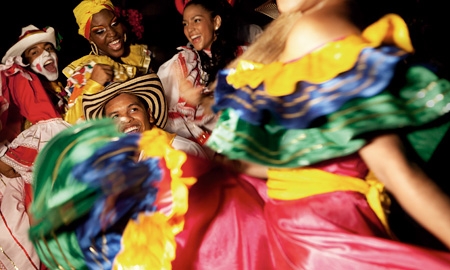The city of Barranquilla, the capital of Colombia’s Atlántico Department, lies at the country’s northernmost edge meeting the Caribbean Sea. It is, in essence, a port town. Its position is precisely its strength – open to the North American market. Thanks to international agreements, Barranquilla has access to a market of over 1.2 billion people, which it is servicing with its advancing logistics infrastructure.
The city’s infrastructure consists of some 25 sea and river ports and its roads are excellently networked, giving Barranquilla easy access to other major cities like Cartagena de Indias and Bogotá. It also boasts an international airport.
Furthermore, the city’s logistics are benefitting from the Inter-American Development Bank’s US$300 million National Logistics Policy program. “We are building the necessary port infrastructure,” says Mayor Elsa Noguera. “It is important to create competitive transportation infrastructure to be able to reduce costs” for all parties.
This is in addition to improvements in policy and regulation in its transportation services, foreign trade control, and institutional framework development. Huge investments are being made in multimodal transportation; however, as its location at the mouth of a major river is so advantageous, much of the focus has been on optimizing the Magdalena River as a main maritime transportation system.
According to Ana Maria Badel, the Executive Director of ProBarranquilla, an agency that promotes private investment and helps investors make decisions about their business, the river is important to strengthen the city as a strategic area for investment and that is why the river’s navigability is being improved. The strategy is working: Barranquilla has been included in the Financial Times’ 2013-2014 Top 10 “Major American Cities of the Future” for FDI strategy.
Olímpica, a successful chain of supermarkets and drugstores with over 280 stores in operation, is opening another 30 stores in 2014. Its founder, Fuad Char Abdala, credits the free trade agreement with the U.S. for this “possibility of more rapid growth”, adding that he “would like foreign companies to develop their industries in Barranquilla to export their products to the U.S.”
The city also has a greatly improving quality of life offering competitive living costs, high quality health services and education. Not to mention that it is the home of the famous Carnaval de Barranquilla and was named the American Capital of Culture in 2013. It is a great place for locals and foreigners, a place to thrive. As Ms. Noguera puts it, it is the city “with the largest growth potential.”
With 325% growth in private equity, Barranquilla is definitely on the “international business map” she says. It’s all geography in the end: “Barranquilla is a coastal city,” the Mayor says. “We have always been a city that was open to the world.”

0 COMMENTS